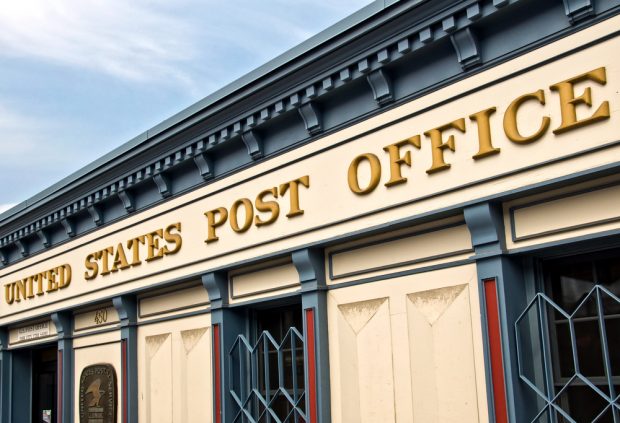 U.S. Post Office (Image: Shutterstock).
U.S. Post Office (Image: Shutterstock).
A group of congressional Democrats announced late last week they will try to convince House and Senate appropriators to include $6 million for a postal banking pilot program in FY22 funding measures.
And this year, they said they are more confident that their plan will be enacted.
Recommended For You
"The U.S. Postal Service is perfectly positioned to offer more financial services to every zip code: Rural, urban and suburban. It's clear that we must act now to reestablish postal banking services," Rep. Marcy Kaptur, (D-Ohio), a member of the House Appropriations Committee said at a news conference Thursday.
"Mainstream financial institutions and predatory lenders often take advantage of underbanked Americans with high fees and interest rates that keep them in a cycle of poverty," Sen. Kirsten Gillibrand (D-N.Y.) said.
"So many families in my community in The Bronx can't afford to be banked," Rep. Alexandria Ocasio-Cortez (D-N.Y.) said. "So instead, they go into checking cashing places and pay relatively large fees – money that's desperately needed for food, rent and diapers. Others go the ATM, and sometimes they can only afford to take out $5, but they're paying $3 in fees."
The House version of the FY21 Financial Services appropriations measure included a provision calling on the Postal Service "to test a pilot program to expand its current postal banking services to surcharge-free automated teller machines, wire transfers, check cashing and bill payment to the fullest extent permitted under current statutory authority."
However, the provision was dropped when the then-Republican-controlled Senate considered its appropriations measure. Now that Democrats control the Senate, Kaptur said she believes the Senate will include the proposal in legislation.
"We think we can get it passed," she said at the news conference. "Our bill was killed … by Republicans in the Senate and it's not going to happen this year."
Gillibrand said if the proposal is included in a measure sent to President Biden, she believes he will accept it. "I don't think he's opposed to it," she said. "We haven't heard anything negative about this."
Gillibrand acknowledged that the banking community is likely to oppose the proposal. Banking and credit union trade groups have vehemently opposed it in the past. Credit union trade groups have said its members would be happy to serve so-called banking deserts if their fields of membership permitted it and have called on Congress to make those changes.
"This is something that the banks will fight against," Gillibrand said. "But it's something that's absurd to fight against."
The Postal Service's Inspector General in the past has suggested that Congress consider postal banking as a way to shore up the finances of the service, which loses billions each year.
In a report issued this month, the IG reported that in rural areas, 60% of post offices did not cover their costs.
"There are opportunities for the Postal Service to use its existing retail footprint to reduce costs, bring in additional revenue, or increase post office utility without reducing access to postal services," the IG said.
© 2025 ALM Global, LLC, All Rights Reserved. Request academic re-use from www.copyright.com. All other uses, submit a request to [email protected]. For more information visit Asset & Logo Licensing.







